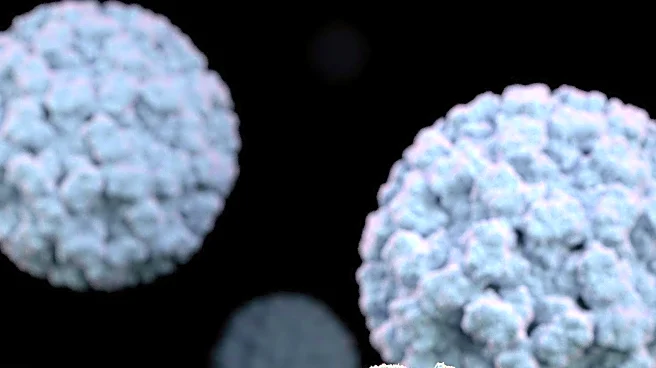What's Happening?
Researchers from the National Taiwan University and National Yang Ming Chiao Tung University have discovered that the rare Antrodia cinnamomea fungus, native to Taiwan, contains compounds with cancer-fighting capabilities. The study focused on sulfate polysaccharides (SPS), a type of sugar molecule known as sulfated galactoglucan, which combines glucose, galactose, and sulfate. These compounds have shown anti-cancer and anti-inflammatory effects in vitro, particularly in reducing inflammation markers and killing lung cancer cells. The fungus can be cultivated in laboratories, eliminating the need for field collection. The researchers developed technology to increase the production of SPS molecules, identifying a beneficial compound, N50 F2, which demonstrated significant anti-inflammatory and cancer cell inhibition properties.
Why It's Important?
The discovery of cancer-fighting compounds in Antrodia cinnamomea highlights the potential of natural sources in developing new pharmaceutical treatments. This finding adds to the growing list of natural substances, such as plants and scorpion venom, that have shown promise in combating cancer. The ability to cultivate the fungus in a controlled environment and enhance the production of its bioactive compounds could lead to the development of new therapies and health supplements. This research underscores the importance of exploring natural environments for innovative medical solutions, potentially benefiting patients with cancer and inflammatory conditions.
What's Next?
Further research is needed to verify the efficacy of these compounds in living organisms beyond cultured cells. The researchers are optimistic about future applications, aiming to develop health supplements and clinical treatments based on these findings. The next steps involve refining the production and extraction processes to ensure the compounds' safety and effectiveness for human use. Continued studies will focus on understanding the mechanisms of these compounds and their potential integration into existing cancer treatment protocols.
Beyond the Headlines
The study raises ethical and environmental considerations regarding the sustainable use of natural resources for pharmaceutical development. The ability to cultivate the fungus in laboratories presents a solution to potential overharvesting in the wild, preserving biodiversity while advancing medical research. Additionally, the research highlights the cultural significance of traditional herbal medicines and their potential contributions to modern science.










